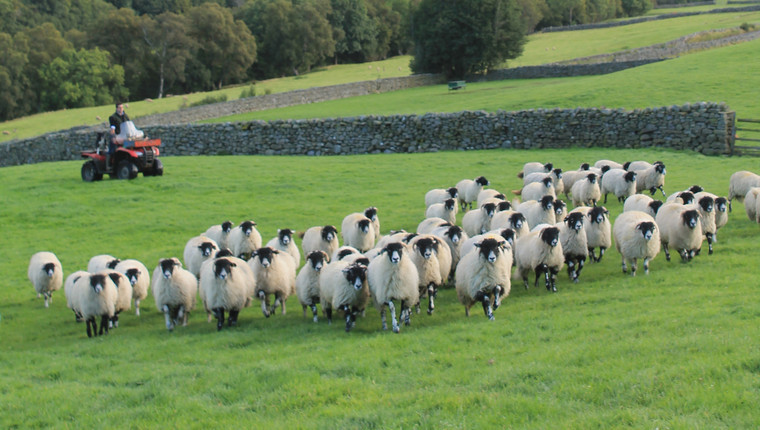The SFI is the first level in a tiered system of Environmental Land Management schemes (ELMS) that will pay farmers for producing public goods such as cleaner water, cleaner air and reduced carbon dioxide emissions.
With expressions of interest opening in mid-March, the department has confirmed that the pilot will combine a payment for land management actions with a participation rate for the work and costs associated with taking part in “learning activities”, paid monthly in arrears.
The initiative will be piloted with an initial group of “several hundred” farmers and then rolled out to farmers who currently receive Basic Payments in March 2022.
Environment Secretary George Eustice told the NFU’s annual conference in October that the SFI pilot would build on what the department had learned through the ELMS test and trials which started in 2018.
DEFRA said it wants the SFI “to be straightforward enough that a farmer can make an application and start their agreement just by using guidance on www.gov.uk, rather than needing separate advice”, adding: “An important point of piloting will be to test whether this is true in practice.”
Pilot scheme farmers must receive Basic Payments and be registered with the Rural Payments Agency, enter fields that are not covered by an existing agri-environment agreement and have management control of the land for the duration of the pilot.
DEFRA has said: “Pilot participants will be asked to take part in a range of co-design activities, providing rapid feedback on their experience of all aspects of the process – from pre-application to implementing their agreements. This will ensure the scheme is fully workable and user-friendly once fully rolled out from 2024.”
George Eustice commented: “The ethos at the heart of our future policy is to support the choices of individual farm enterprises.
“The Sustainable Farming Incentive will support the environment and promote animal welfare. It will reward approaches to farm husbandry such as encouraging integrated pest management, improving soil health and enhancing hedgerows.
“Assets that were previously dubbed ‘ineligible features’ will finally have their value recognised and rewarded. I would encourage farmers to engage in this pilot to help us design the new scheme.”
Royal Association of British Dairy Farmers Managing Director Matt Knight encouraged his members to sign-up, stressing: “The pilot must contain a mix of farm types and … we must have a fair number of dairy farmers from a mix of different systems represented.” He added: “This is our one chance to help shape how future support payments will work.”
The NFU has said it wants the SFI to be taken up by most English farms and “looks forward to seeing further details as soon as they are available to ensure potential applicants for the pilot are able to make informed business decisions”.
It added: “This first phase of the pilot only includes eight standards, so it is important that further development phases include areas such as net zero and animal health and welfare. It’s also crucial that these standards are not too prescriptive. Every farm business is unique and the scheme needs to be structured so that it offers something for every farmer.
“Most importantly of all, the scheme needs to enable farmers to run profitable businesses. The pilot must be used to ensure the scheme is engaging, simple to enter and deliver and operates effectively alongside productive food production.
“We understand the pilot is very much a work in progress and it is imperative that DEFRA uses it to work with farmers to test and develop a scheme that works and is accessible to all farm businesses.”
Farmers who aren’t eligible for, or don’t claim, BPS, are set to be included in a later phase. DEFRA has said further information on the other two ELM schemes, focusing on local nature recovery and landscape recovery, will be shared later this year.
The National Sheep Association also greeted last week’s announcement with enthusiasm and is encouraging eligible sheep farmers to sign up.
Chief Executive Phil Stocker said: “NSA has been working with DEFRA, alongside a number of organisations involved in agriculture and the environment to reach this stage and will continue to work tirelessly to support the development over the coming months and years.”




